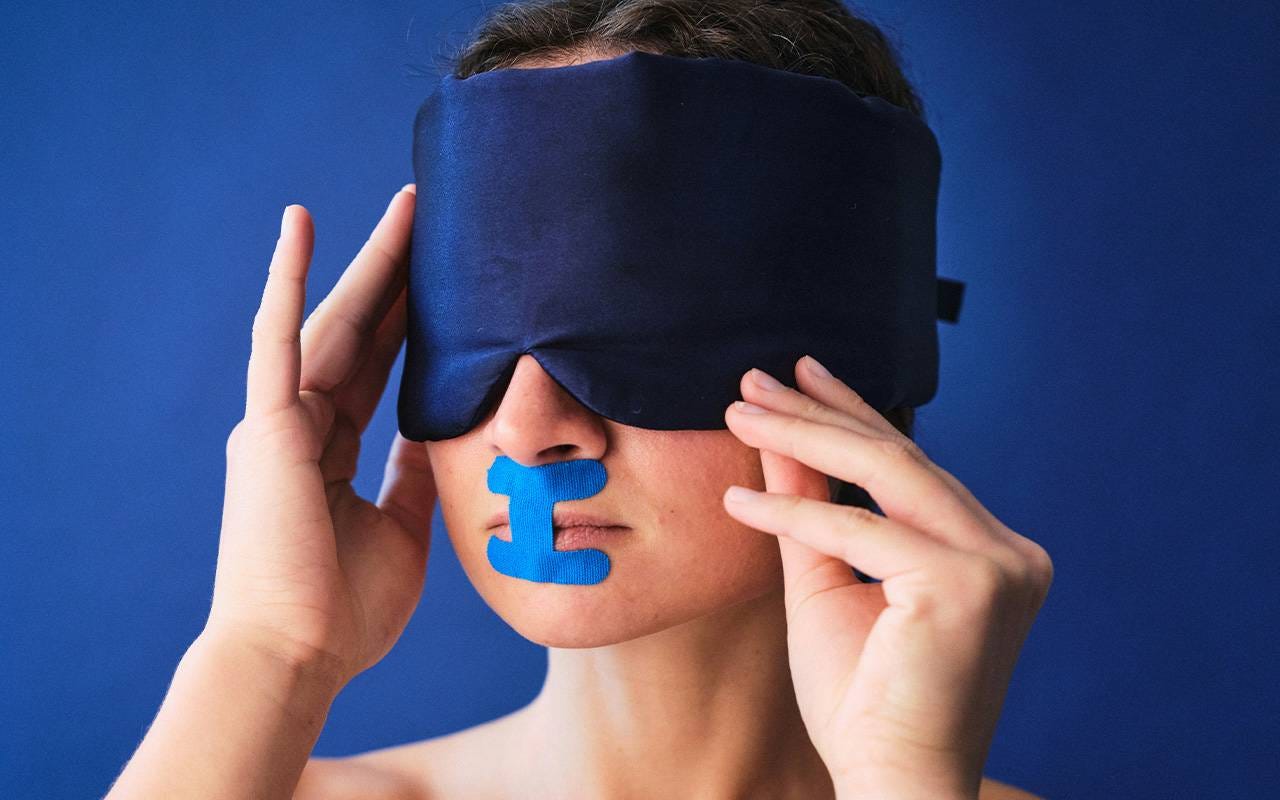Sleepmaxxing and the Anxiety of Rest
Description
You might’ve noticed a trend that’s sweeping TikTok and Gen Z culture: sleepmaxxing.
It’s the idea that you can, and should, optimize your sleep in every possible way. People are building elaborate nighttime routines, buying gadgets, tracking their cycles, and sharing hacks for how to squeeze out that “perfect” night of rest, all in the name of optimization.
On one level, this is great. Sleep is an important factor in brain health, mental health, and emotional regulation; however, there’s a dark side to sleepmaxxing.
In this piece, we’ll explore sleepmaxxing and how to avoid its shadow. For a deeper dive, you can listen to the latest episode of Mental Health Bites here or on Apple Podcasts, and you can find more short clips and helpful tips at my YouTube channel.
Let’s dive in.
The Shadow Side of Sleepmaxxing
It’s no wonder people want to sleepmaxx. Sleep has many benefits. It helps regulate your mood, strengthen memory, and boost problem-solving. It even resets your stress response system. However, there’s a dark side.
The dark side of sleepmaxxing is orthosomnia. While admittedly it has a less catchy name, it’s just as important to your health.
Orthosomnia is when you worry about your sleep to the point that it actually prevents you from sleeping.
You’ve probably been there before, lying awake in bed thinking: Am I asleep yet? Am I doing it right? Will I feel awful tomorrow if I don’t hit my eight hours?
That anxiety itself is enough to spike your nervous system, flood you with stress hormones, and keep you awake. And this is where sleepmaxxing starts to backfire.
When we over-optimize rest, we turn it into another performance goal, and sleep becomes something to achieve rather than something to allow. This can lead to a sleep performance anxiety loop, where our worries about sleep keep us up. This happens because sleep is deeply influenced by our mindset and stress levels, and the more pressure we put on ourselves to sleep “perfectly,” the harder it becomes.
One way to break this loop is to shift your goal from I need to get exactly eight hours to I’m giving my body the chance to rest. You can also try to focus more on the environment you’re creating, rather than the outcome. Consider if your room is dark enough or if you’re giving yourself time to wind down without screens.
Similarly, anxiety about sleep can creep in during the morning. I use an Oura Ring, for example. It’s an incredible tool. I get to see my heart rate, my deep sleep, REM, and a whole range of other biomarkers. But I have to be careful. Sometimes I’ll wake up feeling pretty good, but once I check my Oura score and see that I only got 73 out of 100, I start to worry that I’m going to have a bad day. When this happens, if I’m not careful, I can let the data override how I actually feel in my body. To account for this, I’ve had to train myself to check in with my intuition first. I notice my energy, mood, and focus before I look at the numbers.
The Three R’s Sleep Reset: A Practical Tip to Escape the Sleep Anxiety Loop
If you want to balance sleep optimization with intuition, here’s a tool I recommend. I call it the three R’s Sleep Reset.
* Routine. Pick two or three bedtime cues that tell your body it’s time to wind down. That could be dimming the lights, making a cup of tea, stretching, or reading a physical book. Keep those consistent.
* Relaxation. Focus on calming your nervous system, not just shutting off screens. Try breathwork, journaling, or even a warm shower. The goal is to transition your body into a relaxed state.
* Reality Check. Each morning, before you check any app or device, ask yourself: How do I feel? Do I feel alert? Focused? Or do I feel sluggish? This trains you to trust your body’s signals first. Then you can look at your sleep data if you want. But at that point, the data is information, not judgment. For example, imagine you wake up feeling refreshed, but your app says you only got a “low sleep score.” Instead of immediately believing the app, pause, notice how good you feel, and remind yourself: I feel fine, and that’s what matters most. Over time, this retrains your brain to prioritize lived experience over perfection metrics.
The Bottom Line
Technology can be an incredible support, but intuition is just as valuable. To improve your sleep, don’t seek perfection and beat yourself up when you (as we all will) eventually slip up. Instead, practice consistency, and while you should trust the data, you should also build trust in yourself.
If you know someone who sleeps (I’m guessing you do), and if this piece resonated with you, I’d love for you to share it with someone you think might benefit from a good night’s rest.
Order The New Rules of Attachment here: https://bit.ly/3MvuvvF
Take my attachment styles quiz
About me:
Dr. Judy Ho, Ph. D., ABPP, ABPdN is a triple board certified and licensed Clinical and Forensic Neuropsychologist, a tenured Associate Professor at Pepperdine University, television and podcast host, and author of Stop Self-Sabotage. An avid researcher and a two-time recipient of the National Institute of Mental Health Services Research Award, Dr. Judy maintains a private practice where she specializes in comprehensive neuropsychological evaluations and expert witness work. She is often called on by the media as an expert psychologist and is also a sought after public speaker for universities, businesses, and organizations.
Dr. Judy received her bachelor’s degrees in Psychology and Business Administration from UC Berkeley, and her masters and doctorate from SDSU/UCSD Joint Doctoral Program in Clinical Psychology. She completed a National Institute of Mental Health sponsored fellowship at UCLA’s Semel Institute.
If this piece resonated with you, I’d love for you to share it with someone who might need to hear it. If you’d like access to even more resources, private Q&As, and my entire back catalogue of techniques and tools, I encourage you to check out my paid subscriber option.
This is a public episode. If you'd like to discuss this with other subscribers or get access to bonus episodes, visit drjudyho.substack.com/subscribe
























